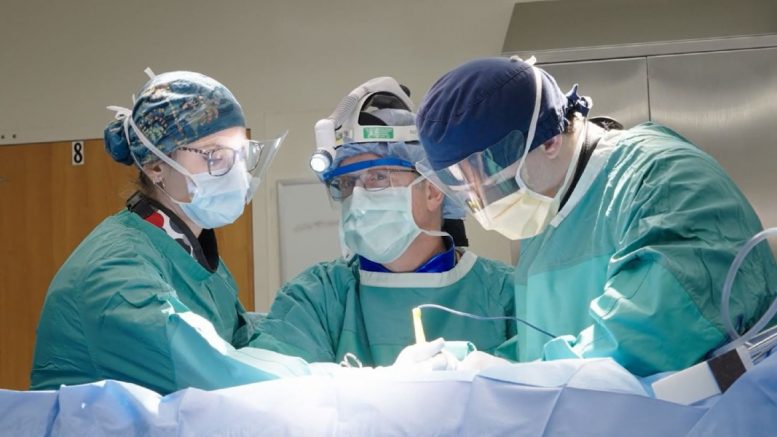Multi-Center Trial of More Than 12,000 Orthopedic Trauma Patients Likely to Change Standard of Care
Patients hospitalized with fractures typically receive an injectable blood thinner, low-molecular-weight heparin, to prevent life-threatening blood clots. A new clinical trial, however, found that inexpensive over-the-counter aspirin is just as effective. The findings, published in the New England Journal of Medicine, may lead surgeons to change their practice and administer aspirin to these patients.
The multi-center randomized clinical trial, which included more than 12,000 patients at 21 trauma centers in the U.S. and Canada, is the largest trial ever conducted on orthopedic trauma patients. This multidisciplinary collaboration between orthopedic surgeons and trauma surgeons points to the importance of evaluating techniques used to prevent post-surgical complications, like blood clots and infections, through high-quality, head-to-head comparison studies.
The trial was co-led by the Department of Orthopaedics at the University of Maryland School of Medicine (UMSOM) and the Major Extremity Trauma Research Consortium (METRC) based at the Johns Hopkins Bloomberg School of Public Health.
“Many patients with fractures will likely strongly prefer to take a daily aspirin over receiving injections after we found that both give them similar outcomes for prevention of the most serious outcomes from blood clots,” said the study’s principal investigator Robert V. O’Toole, MD, the Hansjörg Wyss Medical Foundation Endowed Professor in Orthopaedic Trauma at UMSOM and Chief of Orthopaedics at the R Adams Cowley Shock Trauma Center at the University of Maryland Medical Center (UMMC). “We expect our findings from this large-scale trial to have an important impact on clinical practice that may even alter the standard of care.”
Blood clots cause as many as 100,000 deaths in the U.S. each year, according to the U.S. Centers for Disease Control (CDC). Patients who experience fractures that require surgery are at increased risk of developing blood clots in the lungs and limbs. Large clots in the lungs even can be life-threatening. Current guidelines recommend prescribing low-molecular-weight heparin (enoxaparin) to prevent these clots, although smaller clinical trials in total joint replacement surgery suggested a potential benefit of aspirin as a less-expensive, widely available option.
The study enrolled 12,211 patients with leg or arm fractures that necessitated surgery or pelvic fractures regardless of the treatment. Half were randomly assigned to receive 30 mg. of injectable low molecular-weight heparin twice daily. The other half received 81 mg. of aspirin twice daily. Patients were followed for 90 days to measure health outcomes from the two treatments.
The main finding of the study was that aspirin was “non-inferior,” or no worse than low molecular-weight heparin in preventing death from any cause – 47 patients in the aspirin group died, compared with 45 patients in the heparin group. For other important complications, the researchers also found no differences between the two groups in clots in the lungs (pulmonary embolisms). The incidence of bleeding complications, infection, wound problems, and other adverse events from the treatments was also similar in both groups.
Of all the outcomes studied, the only potential difference noted was in blood clots in the legs, called deep vein thrombosis. This condition was relatively uncommon in both groups as it occurred in 2.5 percent of patients in the aspirin group, and in 1.7 percent of patients in the heparin group.
“This relatively small difference was driven by clots lower in the leg, which are thought to be of less clinical significance and often do not require treatment,” said study co-principal investigator Deborah Stein, MD, MPH, Professor of Surgery at UMSOM and Director of Adult Critical Care Services at UMMC.
The $11.7 million study was funded by the Patient-Centered Outcomes Research Institute (PCORI), (PCS-1511-32745), an independent, non-profit organization that funds comparative clinical effectiveness research to help patients and clinicians make better-informed healthcare decisions.

